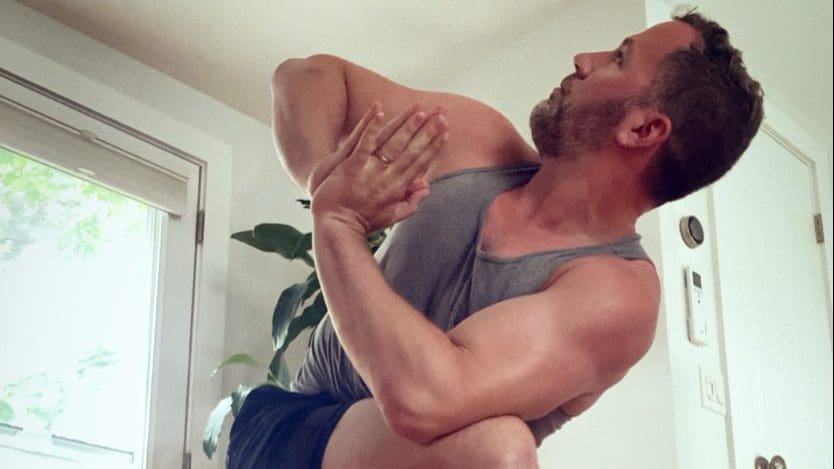
What do we mean by “embodiment”?
One defining aspect of our human experience is that we all live and operate within a unique physical body. Each of us must deal with both the abilities and constraints of the body that we inhabit. Every ‘body’ comes with a unique set of characteristics that, when brought together, create our individuality — with all of the benefits and challenges that come with it.
Somewhat surprisingly, many of us have not learned how to connect with our bodies or fully understand them. This inability to feel and sense our own bodies cuts us off from an essential source of wisdom about our experience on this planet. Why are so many of us out of touch with our bodies, and how can we bridge the gap between our minds and our bodies?
The impact our physical body has on our personal experience is vast. The abilities and constraints of our bodies vary widely; our bodies may or may not allow us to move, express, create, procreate, and connect with others and the world around us. Medical care, daily habits, and lifelong pursuits are heavily influenced by our physical bodies. Attributes such as color, size, and sex can create wildly different experiences for those existing within them. These attributes can impact how we dress, activities we pursue and/or avoid, and importantly how the world views us.
For generations, many of us were raised in cultures that viewed the physical body as a source of sinful pleasures and dirtiness. From my own experience, growing up in my family, topics such as bodily functions, sex, sexuality, and nudity were taboo, even though they are an essential aspect of our human experience. Although natural, they are thought to be dirty and undignified to discuss. However, these are shared human experiences; if we could recognize and discuss them, we might be healthier and happier. Menstrual cycles, bowel movements, physical and mental pain, and emotional distress are a few examples of common, shared human experiences. Denying these experiences is detrimental to each individual and to all hoping to be seen in their fullness.
For men, we go even farther, denying that pain has any impact on us as a way of demonstrating our strength and control. I remember as a child being told by the men in my family that something didn’t hurt after an accident, even though my whole body was screaming a different message. Moments like that are the beginning of denying and ignoring what our bodies have to tell us. After years of this practice, we are often left with little to no sense of our bodies or its sensations besides the most obviously pleasurable and painful.
Consequently, we are less equipped to manage subtle emotions before they grow into explosions, leading to anger and violence. We are left struggling to speak the dying language of love making. We get frustrated when we fall into ruts or fail to satisfy our partners. We may even quench the thirst of our own dissatisfaction by seeking outside partners or activities that often leave us feeling empty and out of integrity. And, we may come to ignore the beginning signs of disease that could make a life-or-death difference to us and those we love.
The good news is that it is never too late to bring your awareness to your physical body and start to listen to the wisdom it’s trying to speak to you. One of the benefits of our physical body is that we can see it, touch it, feel it, hear it, and taste it; and therefore, we can have a direct experience of it immediately. With enough practice we will start to develop a deep and subtle experience of our body that will heighten our intuition and guide us towards people, situations, and choices that will best serve us and our intentions.
The practice of embodiment does exactly this! Using movement, breath, sound, visualization, and attention we can start to experience our bodies and the myriad of sensations and emotions that can coexist. Frequently, these practices are intense and highly focused so that we pay attention to the patterns that arise when we are at our edge. For example, during a Chi Generator posture practice, our bodies will often start speaking to us through tired or aching legs and shoulders. Because these sensations are strong, they become challenging to ignore. More importantly, they also create a stream of thoughts that is often a clue to how we typically operate in the world. In that moment of consciously chosen challenge, we can begin to identify our manner of engagement and explore if that is serving us.
It is said that if something comes up for us during practice, it definitely comes up in other areas of our lives. So, if we recognize patterns of judgment, anger, or negative self-talk during practice we can be sure that others in our lives have been on the receiving end of those things. From there we can start paying closer attention to how we feel when we fall into these engagement strategies and choose to interrupt them before we lose control of our choices.
I am a person who has anxiety. Through embodiment practice, I have identified a sensation in my abdomen that begins to build as my anxiety increases. Because of embodiment practice, I’ve learned to immediately take steps to interrupt my typical anxiety reactions by breathing, connecting to the earth, and by communicating my needs to friends or family. This practice has prevented unnecessary conflict and created opportunities for deep, trust building communication.
So yes, greater awareness of our physical bodies can have a direct impact on our relationships, our health, and our life pursuits. The more we practice paying attention to them the more we can use them to guide us and move us closer to our life’s purpose.